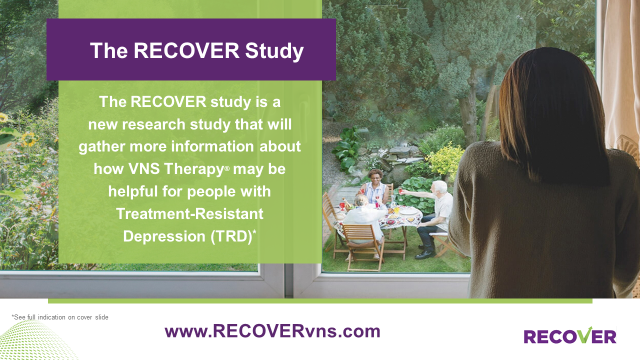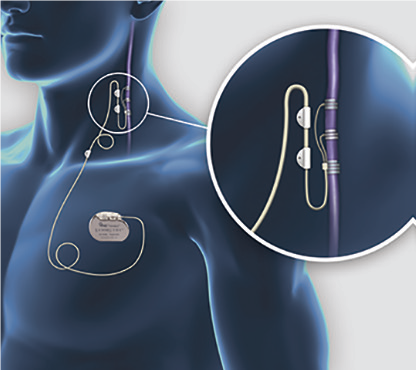
1/3 people with depression have what is called ‘treatment-resistant’ depression, which means they have tried several treatments without success. If several types of treatment haven’t worked for you, or have not worked well enough, joining the RECOVER Study could give you a new opportunity to improve your quality of life. RECOVER is a new research study for people with difficult-to-treat depression and it involves the VNS therapy.
VNS stands for Vagus Nerve Stimulation. VNS Therapy is a treatment for people with depression who have not been helped enough by other types of treatment, such as antidepressant medications (pills, tablets and anti-depressant nasal sprays), psychotherapy (talking therapy), transcranial magnetic stimulation (TMS) and electroconvulsive therapy (ECT). VNS Therapy was approved by the FDA in 2005 as a safe and effective treatment option for treatment-resistant depression (TRD).

Even though VNS Therapy is FDA-approved, Medicare and other insurers do not routinely cover it. To change this, many of the nation’s top depression experts worked together to help design the RECOVER study. If the results are like past studies, this may provide the proof Medicare and insurance companies need to start to cover it.
Disclaimer: The information on this site is not intended or implied to be a substitute for professional medical advice, diagnosis or treatment. All content, including text, graphics, images and information, contained on or available through this website, is for general information purposes only. Please contact your physician to form a plan that addresses your specific needs.
